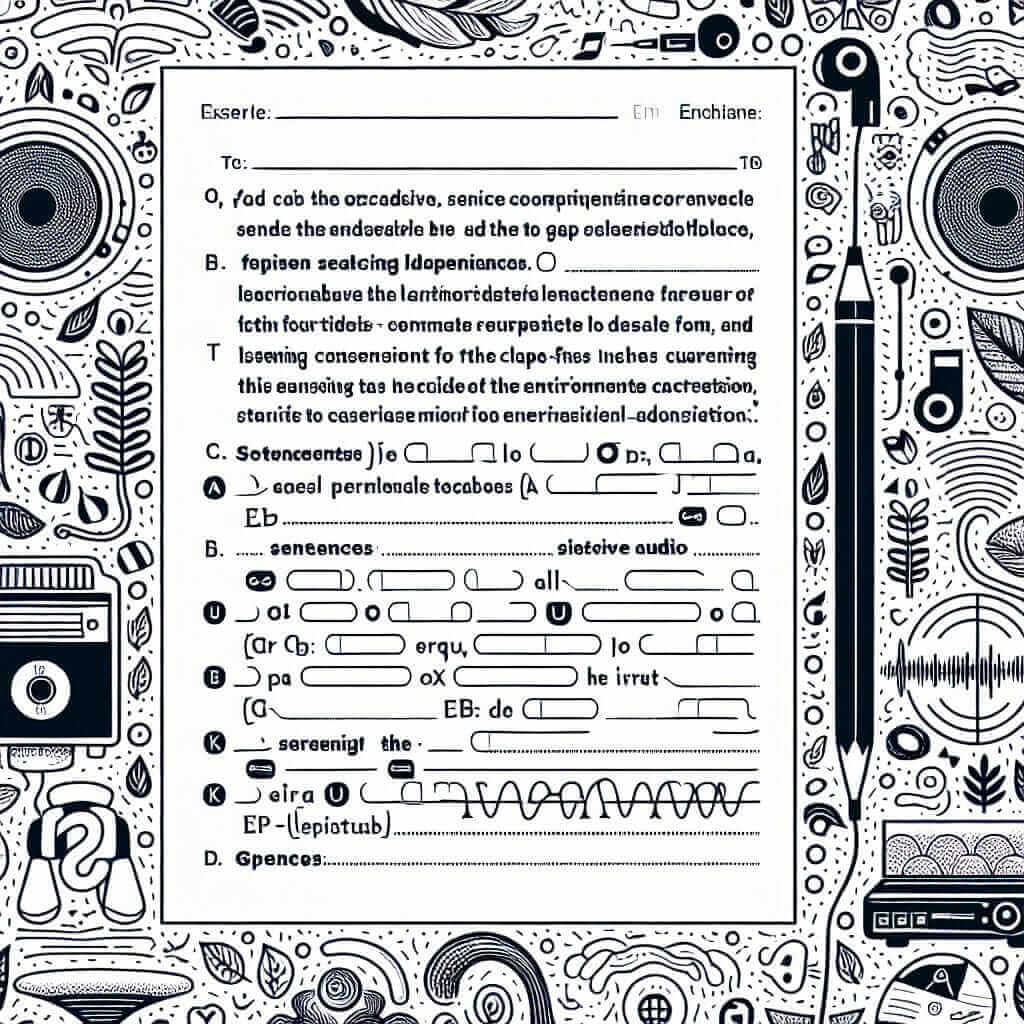As an IELTS instructor with over 20 years of experience, I often encounter students seeking shortcuts and “magic solutions” to conquer the IELTS Listening test. One common phrase I hear is “has been done for you” materials. While readily available resources are undeniably valuable, it’s crucial to approach them with a realistic understanding of their role in your IELTS preparation journey.
The Allure of “Done For You” and What It Really Means
The idea of pre-prepared materials, especially for a high-stakes exam like IELTS, is undoubtedly appealing. It suggests a streamlined path to success, with less effort required. However, it’s essential to clarify what “done for you” truly signifies in the context of IELTS Listening:
- Understanding Concepts, Not Memorizing Answers: “Done for you” materials, such as practice tests with answer keys or pre-filled gap-fill exercises, should be tools for comprehension and skill-building, not shortcuts to memorizing answers. IELTS questions, particularly in the Listening section, are incredibly diverse. Relying solely on pre-existing answers won’t equip you to handle the unpredictability of the real exam.
- Focus on Strategy and Skill Development: Effective “done for you” resources emphasize the strategies needed to tackle different question types. They might provide model answers to illustrate techniques like keyword identification, prediction, or understanding paraphrasing – all essential skills that extend beyond mere memorization.
Making the Most of Existing Resources
Here’s how to use “done for you” IELTS Listening materials effectively:
1. Analyze, Don’t Just Absorb
- Go Beyond the Answers: When reviewing answers, delve into the “why” behind them. How do the answers connect to the audio script? What clues were present?
- Deconstruct the Techniques: If a resource provides strategies for map labeling or multiple-choice questions, actively apply those techniques in your practice.
2. Practice Makes Permanent, Not Perfect
- Variety is Key: Don’t limit yourself to one source or question type. Use a range of materials to expose yourself to diverse accents, topics, and question formats.
- Active Listening is Crucial: Avoid passively listening while reading answers. Challenge yourself to answer questions first, then analyze your performance.
3. Simulate Exam Conditions
- Time Yourself: The IELTS Listening test is time-bound. Practice under timed conditions to build your stamina and focus.
- Use Official Practice Materials: Familiarize yourself with the format and style of the actual exam by using official IELTS practice tests.
 IELTS Listening Gap-fill Exercise
IELTS Listening Gap-fill Exercise
Example: Working with Gap-Fill Exercises
Let’s say you’re practicing with a gap-fill exercise. Here’s how to approach it strategically:
- Pre-listening Preparation: Read the instructions and the incomplete sentences carefully. Predict the type of information needed (e.g., a number, a name, a verb).
- Active Listening: Focus on understanding the overall meaning while paying close attention to keywords related to the gaps.
- Post-listening Analysis: After completing the exercise, don’t just check your answers. Analyze why certain words fit the gaps grammatically and contextually. Refer back to the audio script to understand the cues you might have missed.
Conclusion
While “done for you” IELTS Listening resources can be helpful supplements, they should not be mistaken for a guaranteed shortcut to success. Your focus should always be on active learning, skill development, and consistent practice. Remember, the true measure of your preparation lies in your ability to apply learned strategies and confidently navigate the diverse challenges of the IELTS Listening test.

